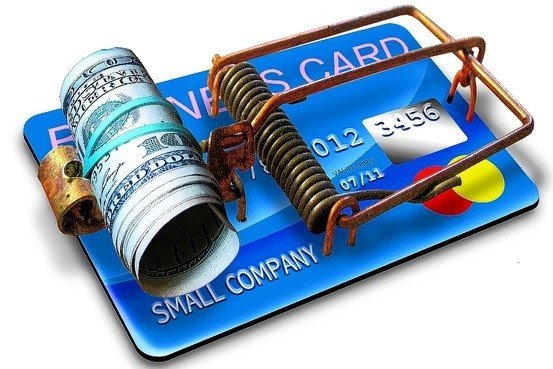Avoiding credit card debt traps

Avoiding debt, especially the kind that sneaks up on you through credit cards, is like navigating a minefield. It requires careful planning, a touch of savvy, and a good deal of self-discipline. Let's dive into how you can steer clear of falling into the debt pitfall, keeping your finances healthy and your mind at ease.
In this post, we’ll explore practical steps to avoid common traps set by credit card companies, manage your spending effectively, and ensure you don't end up in a troublesome financial situation. From understanding the sneaky ways debt can accumulate to developing habits that safeguard against financial instability, we've got you covered.
Ready to get strategic about your spending and saving? Keep reading for a no-nonsense guide filled with actionable advice on sidestepping the snare of high-interest rates and embracing a life free from the chains of debt.
Avoiding Debt: Recognize the Traps
First things first, knowing the enemy is half the battle won. Credit card companies are in it for profit, and they have their ways to lure you into spending more than you can afford. Recognizing these traps is your first move in the debt avoidance dance.
Be wary of "too good to be true" offers, such as zero-interest promotions that leap to sky-high rates after the introductory period. Always read the fine print before diving into deals that may lead you into a deeper hole.
Another common pitfall is the minimum payment trap. It might seem convenient, but it’s designed to keep you in debt longer, paying more interest over time. Always aim to pay more than the minimum due whenever possible.
Also, beware of reward schemes that encourage you to spend more to earn points or cashback. These can easily lead you to justify unnecessary purchases, pushing you further into debt.
Proactive Measures
Now that you’re aware of the pitfalls, it’s time to get proactive. Setting up a budget and sticking to it is fundamental. Know what’s coming in, and more importantly, where it’s going out. Prioritize your spending on necessities before wants.
Emergency savings are your safety net. Start small if you have to, but start. This fund can save you from reaching for your credit card during unplanned financial hiccups.
Using Smart ways to tackle high interest rates can also be a game-changer. These strategies can help reduce the amount of interest you pay, allowing you to clear your debt sooner than you thought possible.
Lastly, don't underestimate the power of saying no. Peer pressure and social influences can often lead to unnecessary spending. Stay firm in your financial goals.
Creative Alternatives to Spending
Before you whip out your credit card for that next purchase, pause and consider cheaper or free alternatives. Want that new book? Check if it’s available at your local library. Craving a fancy dinner out? Try replicating the dish at home for a fraction of the cost.
Experience over items – memories made from experiences last longer than the satisfaction of a new item. Instead of buying material goods, invest in experiences that enrich your life and relationships.
Embrace the DIY ethos – there’s a wealth of tutorials online that can teach you how to fix, create, or improve things by yourself, reducing the need to spend.
Seeking Assistance
If you find yourself sinking despite your best efforts, know that it’s okay to seek help. There are nonprofit organizations dedicated to helping people manage their debt and get back on their feet.
Credit counseling can offer a roadmap out of debt, while a Balance transfer cards: pros and cons review could illuminate options you hadn't considered. Consolidating your debt under a lower interest rate might make it much more manageable.
Remember that seeking assistance is a sign of strength, not weakness. It’s about taking control of your situation and actively seeking a solution.
Nurturing Debt-Free Habits
Finally, the foundation of staying out of debt lies in nurturing healthy financial habits. This means spending within your means, saving regularly, and making informed financial decisions.
Adopting Essential habits for debt-free living can transform your financial destiny. It involves setting realistic goals, tracking your progress, and celebrating small victories along the journey to financial freedom.
Remember, avoiding debt is not about depriving yourself but making smarter choices that align with your long-term financial well-being.
{FAQ}
{FAQ_ITEM}
{FAQ_TITULO}How can I avoid debt when using credit cards?{/FAQ_TITULO}
{FAQ_CONTEUDO}Use credit cards wisely by paying off your balance in full each month, avoiding unnecessary purchases, and keeping track of your spending to prevent overspending. Prioritize using cards for necessities, not wants.{/FAQ_CONTEUDO}
{/FAQ_ITEM}
{FAQ_ITEM}
{FAQ_TITULO}Is it possible to negotiate lower interest rates on my credit card?{/FAQ_TITULO}
{FAQ_CONTEUDO}Yes, it's possible. Many creditors are willing to negotiate interest rates, especially if you have a history of timely payments. It never hurts to call and ask for a rate reduction.{/FAQ_CONTEUDO}
{/FAQ_ITEM}
{FAQ_ITEM}
{FAQ_TITULO}What should I do if I'm already in debt?{/FAQ_TITULO}
{FAQ_CONTEUDO}Start by assessing the total amount of debt and prioritize high-interest debts. Consider seeking professional advice or credit counseling. Strategies like consolidating debts or transferring balances to a card with a lower interest rate can also help.{/FAQ_CONTEUDO}
{/FAQ_ITEM}
{/FAQ}
Conclusion
Avoiding debt requires mindfulness, discipline, and a proactive approach to managing your finances. Remember, the goal isn't just to escape debt, but to build a financially stable future where you can enjoy peace of mind and freedom.
Implementing the tips and strategies discussed here can help you navigate away from the pitfalls of credit card debt and towards a more secure financial standing. It's all about making smart choices today that pave the way for a brighter, debt-free tomorrow.
So, take control of your finances starting now – your future self will thank you!

Related